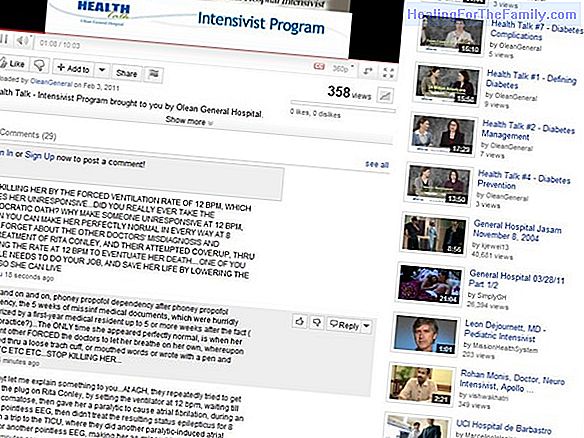How to respond to the phrases of teenagers
We all remember having heard phrases from the elderly (grandmothers, mothers, neighbors ...) that for some things or for others have been recorded (Who has not heard that? from 'who do you think, what am the Bank of Spain?' when asking for money?). Many times we do not realize the importance of what
We all remember having heard phrases from the elderly (grandmothers, mothers, neighbors ...) that for some things or for others have been recorded (Who has not heard that? from 'who do you think, what am the Bank of Spain?' when asking for money?).
Many times we do not realize the importance of what we hear around us. Customs are like folders with information that are recorded in our brain and we have them there forever so that our central computer uses them when they are necessary.
Teen phrases and phrases from parents of teenagers

The same happens with those phrases we have heard from our parents; when we pass to that moment of our life we give it the interpretation it deserves. Many of them are part of popular wisdom, that part of education that we are acquiring subliminally and then it is so valid.
Many of us grew up listening to phrases like 'while you live in this house you will do what I tell you' and saying others like 'my parents do not listen to me' or 'you are always against what I say'. There are phrases that we used to say when we were teenagers that we are going to listen now as parents. This is a great advantage because it means that we know something because we have already lived it, which will allow us to correctly use our weapons and empathize with that complicated stage of adolescence.
How teens feel
It is important that we connect with how we felt when we said those phrases in our teenage years. Let's close our eyes for a second, repeat one of those phrases and try to feel what we felt at that moment ... What happened? Is not it true that we feel that emotion of incomprehension that we felt then?
Our parents did not listen to us, they always wanted to be right, they did not understand what was important to us. Many of us realize when we are adults that our parents did the best they knew, taking the best they were taught. When we are teenagers we feel that our parents are always against what we say but when we reach adulthood we can get to empathize with what they felt, with the fear that they could feel when facing the unknown, to that world that raised them a teenager wanting to be himself.
Because that is one of the main objectives of adolescents: to make oneself, to become that person who makes a mistake and learns from him, who wants to discover new things for himself, different way of doing it.
Tips to improve communication with adolescent children
Goal for parents: listen, not discuss, understand and advise our adolescent children.
1. First, let us become aware that listening is hearing more interpreting. What we have to learn is to listen, in an empathic way, to help us connect with emotion, being attentive to what our child says and feels. We have to be patient and paraphrase what he tells us to confirm that we have understood him. Do not forget that for us one of the most complicated things is to turn off our internal radio; It is the most difficult work we must do.
2. In addition, we should never make judgments; we must be aware that we constantly make judgments, so we must be aware of this.
3. Neither should we discuss, we should stop interrupting assuming that we know what the other is going to say to us because that is how we would put ourselves at their level, we would be putting our power over him.
4. It is important to confirm lo that what we have understood has to do with what they feel and, finally, always ask if they want our advice and help from our experience.












